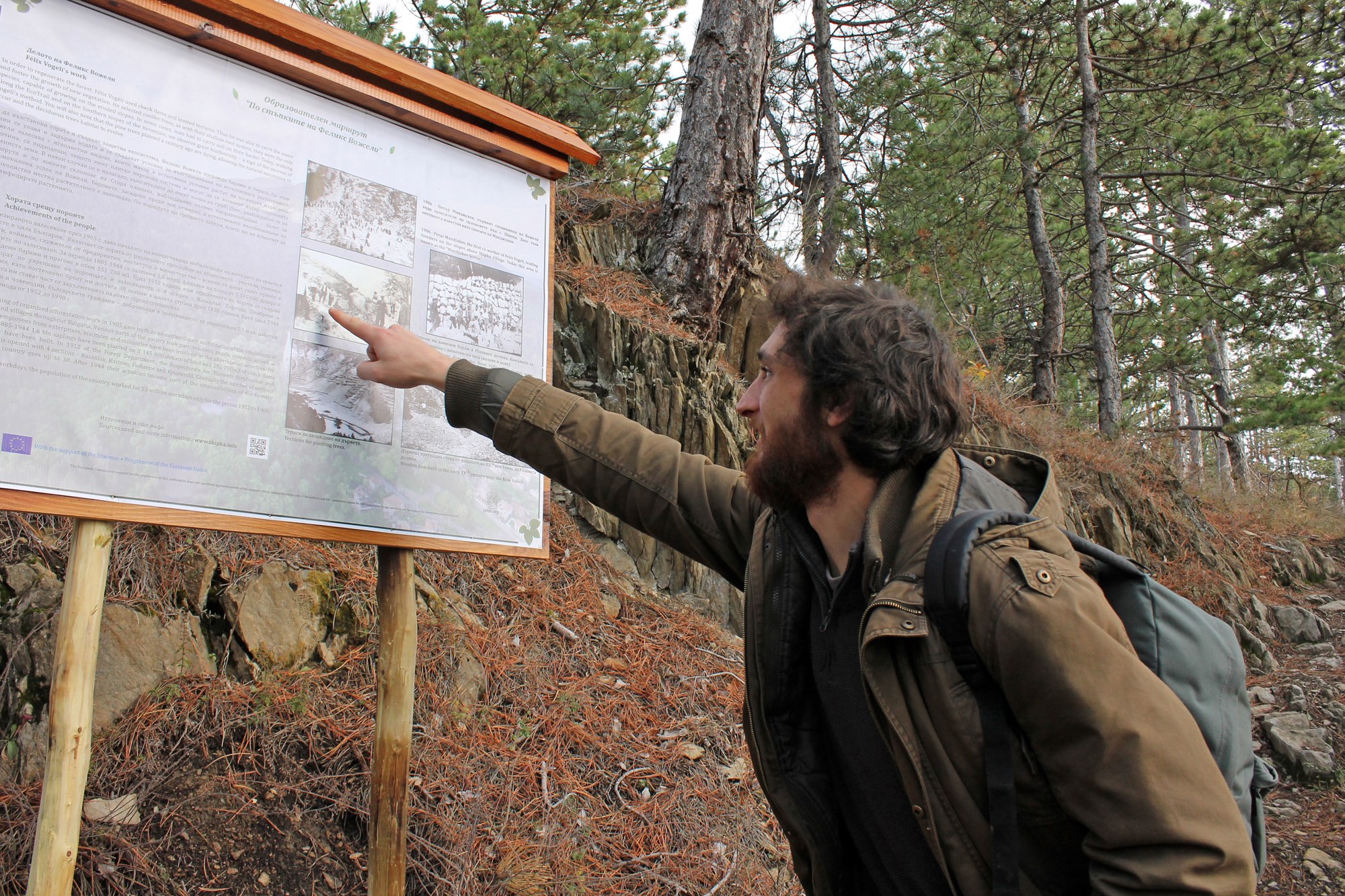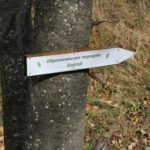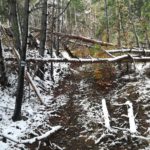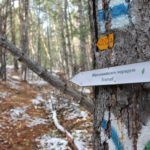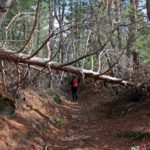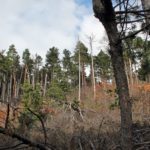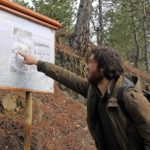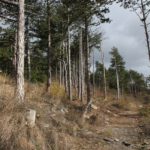In the footsteps of Felix Vogeli, a walk along Shipka eco-trail
Born as a local initiative from volunteers and inhabitants of Shipka, “In the footsteps of Felix Vogeli” is an educational trail with a double aim: raise the awareness about the role of the forest, in terms of preservation of the biodiversity, and keep alive the memory of the organized struggle against soil erosion and floods that affected Bulgaria during the 20th Century.
Here, in the hearth of Kazanlak valley, a hundred years ago the French forester Felix Vogeli laid the beginning of afforestation policies on a national scale. A miraculous epopee which mobilized the whole country and achieved to recover 23 million acres of forests up to the present day. The landscape along the eco-path, nowadays threatened by vegetation change, still bear the signs of its recent past. Here is a review of this exceptional story.
The era of deforestation
“The Bulgarian forest described throughout the centuries as Magna Silva Bulgarica, welcomed the 20th century with only remains of its former glory due to human activities. […] Kazanlak Valley was a scary example of the influence of torrential rivers and gullies that caused devastating floods during each heavy rain.” (Gora magazine, 2002) This is likely one of the most impressive images from the “era of deforestation”, a process started under the Ottoman Empire that led to the destruction of the Bulgarian forest ecosystem causing intensive soil erosion and torrential floods until the 20 th Century. Its most tragic episode date back to 1861. According to chronicles of the time, few streams of the Tundzha River catchment overflowed with devastating effects on forests, roads and human settlements in Kazanlak valley. No such massive catastrophe has been recorded on the Bulgarian territory since then.
The era of afforestation
The first step toward a solution of the problem was made few decades later by Petar Ivanov with the article “The Valley of Kazanlak Future Desert” (1896). His clear and alarming analysis drew the attention of the Bulgarian Government, who decided to ask for help to France in the fight against soil erosion and floods. Professionals were sent in concerned areas to investigate the phenomenon and proposed a definitive measure to curb it: the afforestation of damaged slopes. It was the change of course that Bulgaria needed and the dawn of a new age. In 1905, with the establishment of the first Bureau for Torrent Stabilization and Afforestation in Kazanlak, organised erosion control and afforestation activities began under the leadership of Felix Vogeli. During his 6 years of service, the French forester managed to carry out a wide range of interventions and projects in Bulgaria, where before 90% of the wooded areas were covered with low-stemmed or shaved forest. Thanks to his expertise and legacy, 2.300.000 hectares have been afforested for the past 100 years -of which 820.000 have erosion purposes-, in addition to 618.000 m3 of barrages and thresholds, 395.000 m3 of stone sills, 600.000 m2 of landfills and 429.000 coastal stitches. Shipka eco-trail embodies this history and symbolises the victory of foresters over soil erosion and floods. An undeniable historical fact with real and concrete dimensions, which shows the fundamental contribution of Bulgaria to the European and world forestry sector.
Our special thanks to Toto, geographer and EVS volunteer in Shipka who realized the signalization of the eco-trail and accompanied us along it, for his help to read the landscape and to uncover this story barely unknown.

